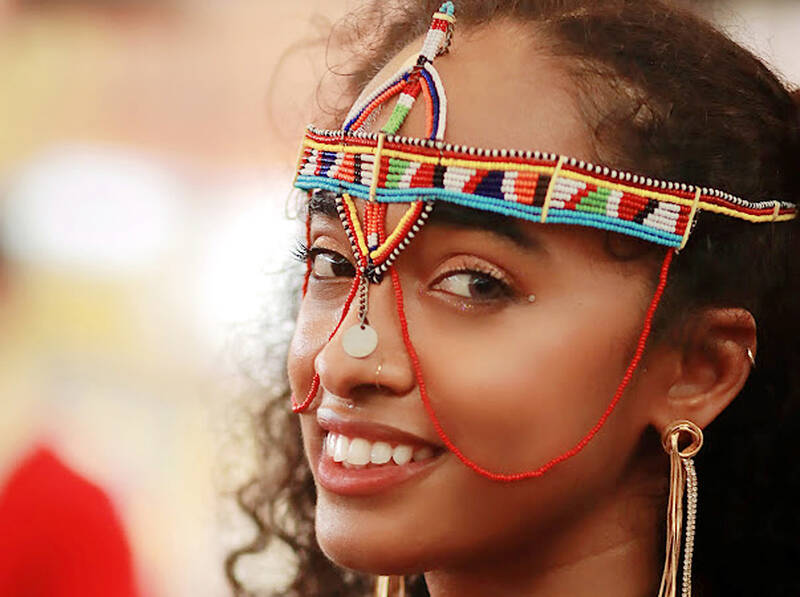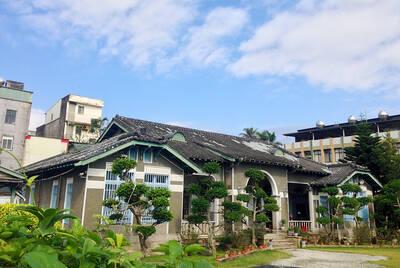From peanut curry and jollof rice from The Gambia to Jamaican-style barbecue chicken to South African “chakalaka” (a spicy vegetable relish), food from more than 10 African and African diaspora countries can be found at Saturday’s Mama Africa Heritage Festival.
Now in its third year, the Mama Africa Heritage Festival was co-launched in 2020 by Anita Kyalo, who hails from Kenya and has lived in Taiwan for nine years. She first came here through performing traditional African dances and acrobatics, and to celebrate the greater black community in Taiwan they created a food and culture festival that expanded beyond the borders of the African continent and included all people of African origin, including the Caribbean and Americas.
There will be arts and crafts, beauty and hair products for kinky and curly hair and a wide range of performances including poetry readings, high-energy Caribbean dance grooves, a Kizomba dance workshop and a Tanzanian contortionist.

Photo courtesy of Mama Africa Festival
“It’s important for the Mama Africa team to showcase the ethnic and cultural diversity of black communities that exist within Taiwan,” co-organizer Dooley says.
Saturday from 1pm to 9pm at C.C.Work (兆基商務中心), 92, Jianguo N Rd Sec 3, Taipei City (台北市建國北路三段92號)
NT$500 at the door, NT$400 in advance, free for children under 10
For more information, visit: tinyurl.com/38tfc79z

From the last quarter of 2001, research shows that real housing prices nearly tripled (before a 2012 law to enforce housing price registration, researchers tracked a few large real estate firms to estimate housing price behavior). Incomes have not kept pace, though this has not yet led to defaults. Instead, an increasing chunk of household income goes to mortgage payments. This suggests that even if incomes grow, the mortgage squeeze will still make voters feel like their paychecks won’t stretch to cover expenses. The housing price rises in the last two decades are now driving higher rents. The rental market

July 21 to July 27 If the “Taiwan Independence Association” (TIA) incident had happened four years earlier, it probably wouldn’t have caused much of an uproar. But the arrest of four young suspected independence activists in the early hours of May 9, 1991, sparked outrage, with many denouncing it as a return to the White Terror — a time when anyone could be detained for suspected seditious activity. Not only had martial law been lifted in 1987, just days earlier on May 1, the government had abolished the Temporary Provisions Effective During the Period of National Mobilization for Suppression of the Communist

When life gives you trees, make paper. That was one of the first thoughts to cross my mind as I explored what’s now called Chung Hsing Cultural and Creative Park (中興文化創意園區, CHCCP) in Yilan County’s Wujie Township (五結). Northeast Taiwan boasts an abundance of forest resources. Yilan County is home to both Taipingshan National Forest Recreation Area (太平山國家森林遊樂區) — by far the largest reserve of its kind in the country — and Makauy Ecological Park (馬告生態園區, see “Towering trees and a tranquil lake” in the May 13, 2022 edition of this newspaper). So it was inevitable that industrial-scale paper making would

Hualien lawmaker Fu Kun-chi (傅?萁) is the prime target of the recall campaigns. They want to bring him and everything he represents crashing down. This is an existential test for Fu and a critical symbolic test for the campaigners. It is also a crucial test for both the Chinese Nationalist Party (KMT) and a personal one for party Chairman Eric Chu (朱立倫). Why is Fu such a lightning rod? LOCAL LORD At the dawn of the 2020s, Fu, running as an independent candidate, beat incumbent Democratic Progressive Party (DPP) lawmaker Hsiao Bi-khim (蕭美琴) and a KMT candidate to return to the legislature representing